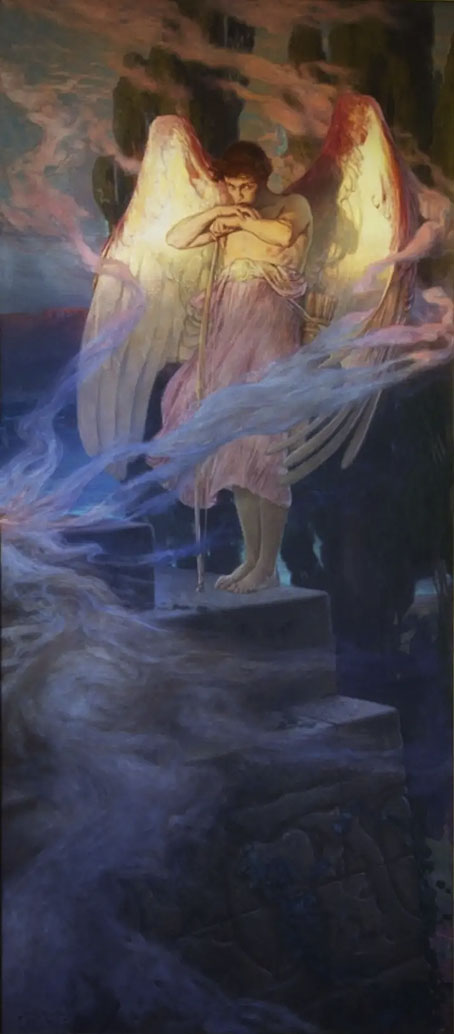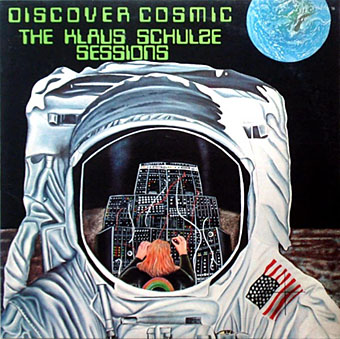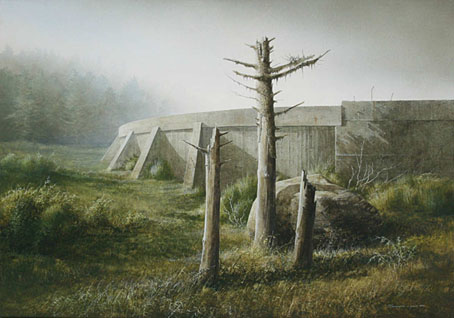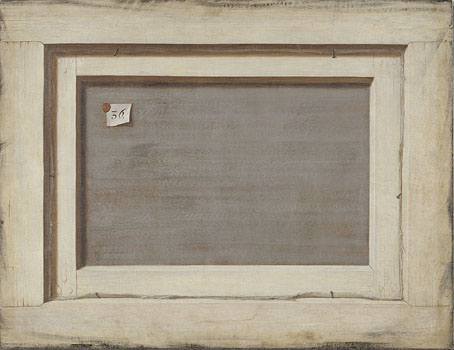Eros (1905) by Julius Kronberg.
• At the Internet Archive (for a change): All 15 episodes (with English subs) of Návštevníci (The Visitors, 1983/84), a Czech comedy TV serial about time travellers visiting the present day. Directed by Jindrich Polák, better known for the serious science fiction of Ikarie XB-1 and another time-travelling comedy, Tomorrow I’ll Wake Up and Scald Myself with Tea. The main interest for this viewer is the involvement of Jan Svankmajer who creates collage animation for the first episode while animating food and other objects in later episodes. This was the period when Svankmajer was mainly working as an effects man at the Barrandov Studios after the Communist authorities had put a stop to his film-making. Even with Svankmajer’s involvement I’m not sure I can endure 450 minutes of Czech wackiness but it’s good to keep finding these things.
• “…for the melomaniac who wasn’t in and around Bristol in the 1980s or 90s, the term [trip hop] simply opens the door to a whole universe of music that blurs the lines between so many styles in a way that is still compelling three decades on.” Vanessa Okoth-Obbo on the 30th anniversary of Protection by Massive Attack.
• Coming soon from Strange Attractor: Moon’s Milk: Images By Jhonn Balance, compiled by Peter Christopherson & Andrew Lahman.
For some in Ireland, [The Outcasts] is a dim but impressive memory, glimpsed on late-night television during its only broadcast in 1984. The Outcasts over the decades became a piece of Irish cinema legend, less seen and more peppered into conversations revolving around obscure celluloid. The Irish Film Institute describes this film as “folk horror”, a phrase I find too liberally applied these days to just about anything featuring sticks, rocks, and goats or set in the countryside. The Outcasts does not necessarily strive for the ultimate unified effect of horror. Instead, this film is of a rarer breed, more akin to Penda’s Fen (1974) in its otherworldly ruminations. I’ve come to prefer the phrase “folk revelation” as perhaps a more accommodating description for these sorts of stories. Whatever the case, I hope you get to see this remarkable film.
Brian Showers discussing the contents of The Green Book 24, newly published by Swan River Press. The Outcasts has just been released on blu-ray by the BFI
• Still casting a spell: Broadcast’s 20 best songs – ranked!
• New music: Earthly Pleasures by Jill Fraser.
• At Dennis Cooper’s: John Carpenter‘s Day.
• RIP Maggie Smith.
• The Visitors (1981) by ABBA | Two Different Visitors (2003) by World Standard & Wechsel Garland | We Have Visitors (2010) by Pye Corner Audio





